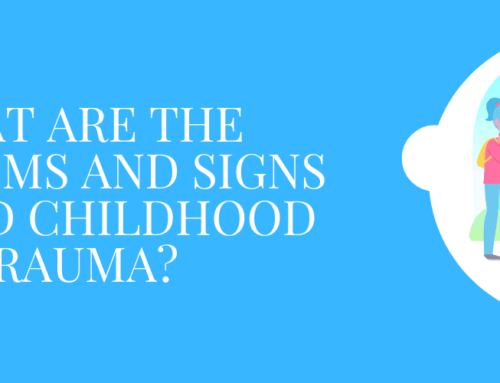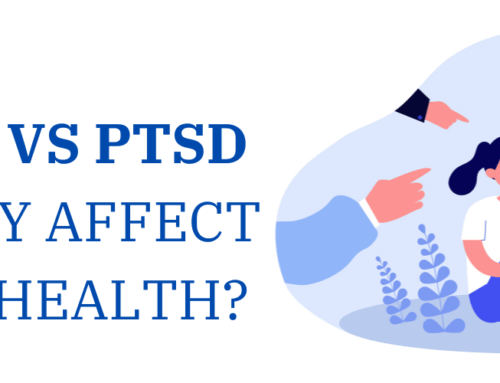Treating Nurses with PTSD: Challenges and Solutions
Nurses, including clinical nurse specialists (CNSs), play a crucial role in the healthcare system, ensuring that every patient receives the best possible care through their expertise, compassion, and dedication. Post-Traumatic Stress Disorder (PTSD) is a psychiatric condition that arises after exposure to traumatic events, such as violence, unexpected death, or life-threatening situations. While PTSD is often associated with military personnel or victims of severe trauma, nurses are increasingly recognized as a vulnerable population due to their frequent exposure to distressing experiences in healthcare settings. This essay explores the prevalence of PTSD among nurses, its impact on their professional and personal lives, and strategies for effective treatment and prevention.
What challenges do nurses face in the healthcare system today?
Nurses today face numerous challenges in the United States, including high patient-to-nurse ratios, burnout, inadequate mental health support, and emotional strain from traumatic experiences. These factors can lead to increased stress and job dissatisfaction among registered nurses (RN), practical nurses, and nurse practitioners, especially when dealing with patients experiencing chronic conditions like heart disease, making it essential for nurses to address their well-being, collaborate with health professionals, provide direct patient care, and advocate for the care of individuals while implementing effective quality assurance procedures and solutions for public health according to the Bureau of Labor Statistics to achieve the very best patient outcomes and a healthier work environment.
Prevalence and Causes of PTSD in Nurses
Nurses face unique occupational hazards that place them at high risk for developing PTSD. Routine nursing care often involves exposure to traumatic events such as patient deaths, violence, and severe injuries. Studies have shown that 20-30% of critical care nurses experience symptoms of PTSD, while up to 87% of emergency room nurses report exposure to one or more traumatic incidents within six months5. Additionally, workplace stressors like understaffing, bullying, and violence from patients or family members exacerbate the psychological toll on nurses4,5.
The nature of nursing work—providing care in high-stakes situations—makes nurses susceptible not only to direct trauma but also secondary stress. Secondary stress occurs when caregivers internalize the pain and suffering of their patients, leading to vicarious traumatization or compassion fatigue5,8.
Symptoms and Impact
PTSD symptoms in nurses can manifest as intrusive memories, avoidance behaviors, negative mood changes, and heightened emotional reactivity1. These symptoms affect both their professional performance and personal well-being. Nurses with PTSD may struggle with concentration, decision-making, or interpersonal relationships at work. This can lead to errors in patient care, reduced job satisfaction, and higher turnover rates7,8.
On a personal level, untreated PTSD can result in anxiety disorders, depression, substance abuse, and strained relationships. The stigma surrounding mental health issues in healthcare professions often prevents nurses from seeking help8.
Treatment Strategies
Effective treatment for nurses with PTSD requires a multi-faceted approach that combines individual therapy with organizational support.

Psychotherapy and Medication
- Psychotherapy methods such as cognitive behavioral therapy (CBT) and exposure therapy are highly effective for managing PTSD symptoms. These therapies help individuals process traumatic memories and develop coping mechanisms2.
- Medication such as antidepressants may be prescribed to alleviate symptoms like anxiety and depression1.
Trauma-Informed Care
Trauma-informed care emphasizes creating safe environments that acknowledge the psychological impact of trauma on both patients and caregivers. For nurses experiencing PTSD:
- Safety measures include fostering trustworthiness and transparency within the workplace.
- Empowerment strategies encourage nurses to take an active role in their recovery through peer support networks and self-care practices3,5.
Organizational Support
Healthcare organizations play a critical role in preventing and managing PTSD among nursing staff:
- The Pathway to Excellence® framework promotes well-being through shared decision-making, leadership accessibility, workplace safety measures, and professional development programs4.
- Resilience-building initiatives focus on stress management techniques like mindfulness training, yoga, and relaxation exercises1,7.
The American Nurses Association (ANA) plays a crucial role in advocating for the interests of nurses and promoting high standards of practice, ensuring that this essential profession continues to evolve and thrive.
Prevention Strategies
Preventing PTSD among nurses requires proactive measures at both individual and institutional levels:
- Self-Care: Nurses should prioritize self-care practices such as regular exercise, adequate sleep, and mindfulness activities to build resilience against stress2,4.
- Education: Training programs on recognizing early signs of trauma can empower nurses to seek help before symptoms worsen3,7.
- Supportive Work Environments: Organizations must address systemic issues like understaffing and workplace violence that contribute to nurse burnout4.
Conclusion
PTSD is an under-recognized yet significant issue affecting nursing professionals. Addressing this problem requires a holistic approach that combines individual treatment with organizational reforms. By prioritizing mental health through trauma-informed care practices, resilience training, and supportive workplace environments, healthcare systems can ensure the well-being of their nursing staff while maintaining high-quality patient care. Recognizing nurses as both caregivers and potential trauma survivors is essential to fostering a healthier workforce.
APA Citation List
- NurseTogether. (n.d.). Post-Traumatic Stress Disorder (PTSD): Nursing Diagnoses & Care. NurseTogether. Retrieved from https://nursetogether.com/post-traumatic-stress-disorder-nursing-diagnoses-care
- CPTSD Foundation. (2021, August 4). The role of nurses in PTSD recovery. CPTSD Foundation. Retrieved from https://cptsdfoundation.org/2021/08/04/the-role-of-nurses-in-ptsd-recovery
- NursingBird. (n.d.). Trauma-informed care in nursing: Healthcare paper example. NursingBird. Retrieved from https://nursingbird.com/trauma-informed-care-in-nursing-healthcare-paper-example
- My American Nurse. (n.d.). Pathway to Excellence®: A framework to combat PTSD. My American Nurse. Retrieved from https://myamericannurse.com/pathway-to-excellence-a-framework-to-combat-ptsd
- Schofield, P. (2019). Post-Traumatic Stress Disorder in nursing populations: Implications for practice [Doctor of Nursing Practice scholarly project]. Bradley University, Department of Nursing. Retrieved from https://doctorsofnursingpractice.org/wp-content/uploads/ptsd-implications-post-traumatic-stress-disorder-in-nursing-populations.pdf
- NursingEducation.org. (n.d.). PTSD: Specialized care and supportive services. NursingEducation.org. Retrieved from https://nursingeducation.org/resources/ptsd-specialized-care-and-supportive-services
- OJIN: The Online Journal of Issues in Nursing. (n.d.). Improving resilience in nurses affected by PTSD. OJIN: The Online Journal of Issues in Nursing. Retrieved from https://ojin.nursingworld.org/table-of-contents/improving-resilience-in-nurses-affected-by-ptsd
- Unizin Wisconsin Pressbooks. (n.d.). Recognizing PTSD’s effects on health care professionals. Unizin Wisconsin Pressbooks. Retrieved from https://wisc.pb.unizin.org/english100coursecontent/chapter/recognizing-ptsd-effects-on-health-care-professionals
Filed in: Adults, Career, Orlando, Pedro Michael Valdez IV, Post Traumatic Stress Disorder (PTSD), Self-Care
Share This Story, Choose Your Platform!
Total Life Counseling Center consists of Licensed Counselors, masters level therapists, Español counselors, Licensed Mental Health Counselors, business coaches, and image enhancement coaches who provide counseling for emotional, mental, physical and spiritual care including marriage, individual, family, substance abuse and more. TLC’s family, trauma and marriage experts have been interviewed on National and Local TV/Radio over 200 times for their expert advice on Fox News, OWN, WETV, ABC’s Medical Minute and more. Our skilled counselors are relational, approachable and specialists providing therapy services in the Central Florida area including: Orlando, Winter Park, MetroWest, Windermere, Dr. Phillips, East Orlando, Lake Mary, and Clermont, Boca Raton Florida, and Dallas, TX.






